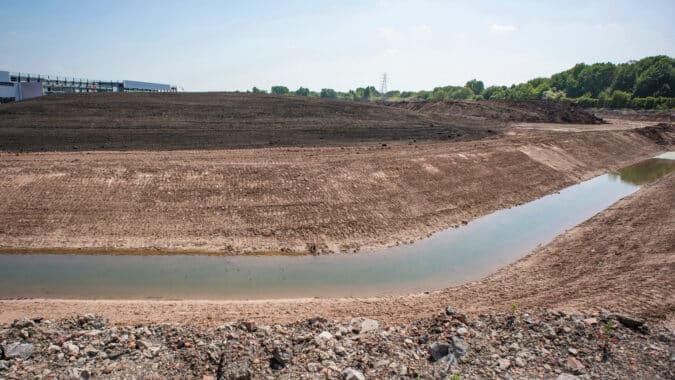The New Jersey Business and Industry Association and the New Jersey State Chamber of Commerce recently held a Joint Environmental Quality and Energy Policy Committee meeting r to discuss current environmental issues, as well as the Board of Public Utilities (NJBPU) Clean Energy Program’s Energy Efficiency measures and how businesses can take advantage of these initiatives.
The meeting featured guest speakers Elizabeth Ebinger, Senior Manager of Energy Efficiency Marketing and Outreach at TRC Companies, Inc., Susanna Chiu, Director of Energy Services at PSE&G, and Jerry Ryan, Energy Efficient Technology & Operations Manager at New Jersey Natural Gas.
New Jersey’s Clean Energy Program, administered by (NJBPU), offers financial incentives and services for New Jersey residents, business owners, and local governments. The program provides opportunities to reduce energy usage and operating costs while protecting the environment and aligns with Gov. Phil Murphy’s goal of achieving 100% clean energy by 2050.
Additionally, the Clean Energy Act of 2018 required all New Jersey utilities to offer energy efficiency programs to achieve reductions in energy usage in gas and electricity and set specific annual targets over the next five years. New Jersey Natural Gas offers rebates for financing energy-efficient equipment for businesses and programs to help small businesses to make upgrades affordable.
Similarly, PSE&G programs include incentives for energy-efficient equipment installation and incentives for small businesses to reduce upfront costs of energy-saving equipment. The aim of the PSE&G Energy Efficiency initiatives, as Chiu stated, include making energy efficiency a priority for businesses. Additionally, PSE&G is dedicated to creating jobs through its Clean Energy jobs program, which focuses on creating careers, particularly in low income and diverse communities.
There was also a discussion on Protecting Against Climate Threats rules NJPACT, which were part of Executive Order No. 100 signed by Gov. Murphy in January of last year. The order required the Department of Environmental Protection (DEP) to initiate regulatory efforts to reduce greenhouse gas and other emissions.
The DEP is continuing to formulate the PACT rules which will include measures such as zero emissions on trucks and land use regulations that are anticipated to be released early next year.
NJBIA’s Ray Cantor expressed that the DEP should establish more practical and enforceable targets when formulating the PACT rules. Toby Hanna, of ERM Environmental Resources, discussed the PACT rules’ focus on stationary sources, such as boilers and EGUs, Hanna informed the group that these rules were not proposed over the summer, as DEP had stated, and are likely undergoing some revisions to address concerns raised by the regulated community.
Jeff Casaletto, of Norris McLaughlin, discussed new DEP regulations concerning the Site Remediation Program including changes to certain cleanup standards and documentation requirements. He also said that the DEP has not issued any proposal implementing the recently adopted SRRA 2.0 law.
Cantor expressed that the Department of Environmental Protection should engage in a beneficial stakeholder process in soliciting and responding to public comments regarding the recently enacted Environmental Justice Law. However, the DEP is heading in concerning directions in some areas, including beginning the implementation of the new law through an Administrative Order, even though regulations have yet to be proposed.
For more information on the energy issues facing New Jersey businesses, NJBIA is hosting a hybrid in-person and virtual Energy Summit: Energy and Decarbonization: A Business Perspective on October 22 from 8 a.m.-4 p.m. at Forsgate Country Club in Monroe Township.

